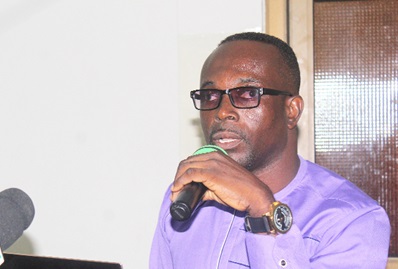
Flood recession agriculture key to food security, increasing incomes
Flood recession agriculture (FRA) has the potential to increase the incomes of smallholder farm households in the floodplains of the White Volta River Basin and improve food security, the Director of Hydrology of the Ghana Hydrological Authority, Sylvester Darko, has said.
FRA is an agricultural initiative that relies on residual soil moisture and nutrients left by receding floodwater.
Mr Darko said studies in the White Volta Basin had shown that growing cowpea, groundnut and melon under residual-moisture based FRA and high value crops such as onion, pepper and tomato under supplementary irrigation FRA maximised household incomes and food security.
He said a survey of nine communities in the Upper East and Northern regions revealed that more than 60 per cent of households in floodplains practised FRA.
Mr Darko said this at a seminar on satellite-based information to support farming in floodplains in Accra last Wednesday.
The event falls under the Orange Knowledge Programme managed by Nuffic, and funded by the Ministry of Foreign Affairs of the Netherlands.
It is implemented by HKV, a Dutch consultancy firm, the Ghana Hydrological Authority and the Ghana Meteorological Agency (GMet).
Opportunities
Opportunities, Mr Darko said, abounded to promote highly productive FRA as a means of extending the growing season beyond May to September — regarded as the short rainy season — into the dry season, thereby increasing household income and food security of smallholder farmers.
"The residual soil moisture and nutrient-rich soil deposits brought by the floods allow farming activities to be extended beyond the traditional growing season," he said.
In northern Ghana, he stressed that the potential of the FRA had not been fully utilised, and that there were knowledge gaps in agronomic activities, agricultural water management, flood-compatible crop types and agricultural market information system.
The challenge however, he said, was how to tum FRA into a purposeful agricultural production system in the region.
Mr Darko said remote sensing was one of the low-cost but effective tools for monitoring natural resources and flooded areas on a timely basis.
"A wide range of satellites is capturing information at various spatial, spectral, temporal and radiometric resolutions,” he said.
Link
FRA, Mr Darko said, was linked to areas that were prone to annual flooding, making use of the moisture left behind after the floods, and sometimes even using the water of the rising floods as well.
In Africa alone, he said, flood recession agriculture might amount to over 20 million hectares.
"As floodwaters spread, they can threaten lives, inundate properties and businesses, destroy belongings, damage vital infrastructure and prevent access to essential public services.
"Often, the effects of flood are long term, and can be very costly, disruptive and distressing for communities involved," he said.
Northern Ghana is endowed with fertile floodplains across the White Volta River Basin, where flooding occurs on an annual basis, mostly in the months of August and September.
Floods increase residual soil moisture and deposit soil nutrients on the floodplains, allowing farming activities to be extended beyond the traditional growing season.
Farmers along the floodplains in northern Ghana ordinarily practise FRA to grow different types of crops.
"Food insecurity is a recurrent problem in northern Ghana. Food grown during the rainy season is often insufficient to meet household food needs, with some households experiencing severe food insecurity for up to five months in a year," Mr Darko said.
The Head of Hydrometeorological Unit of GMet, Samuel Owusu Ansah, said the floodplains of northern Ghana were both a blessing and a challenge, and that while they provided fertile soil and water resources vital for agriculture, they also posed risks of flooding that could devastate crops and communities.
“In the face of these challenges, the integration of satellite-based information and technology presents a very great opportunity to enhance resilience, optimise resource management and ultimately improve agricultural productivity,” he said.
